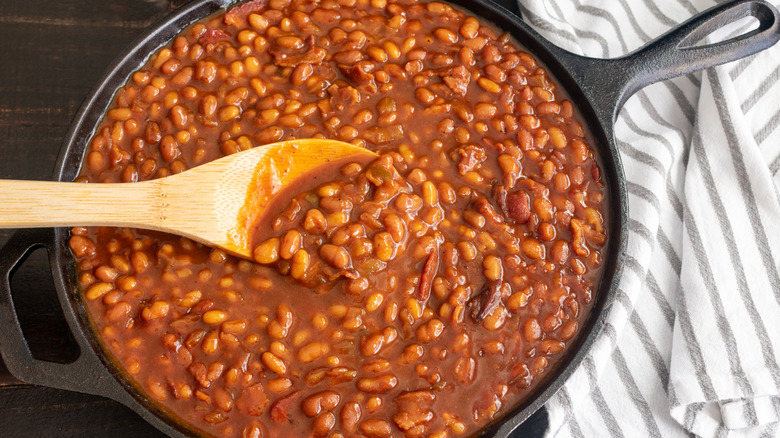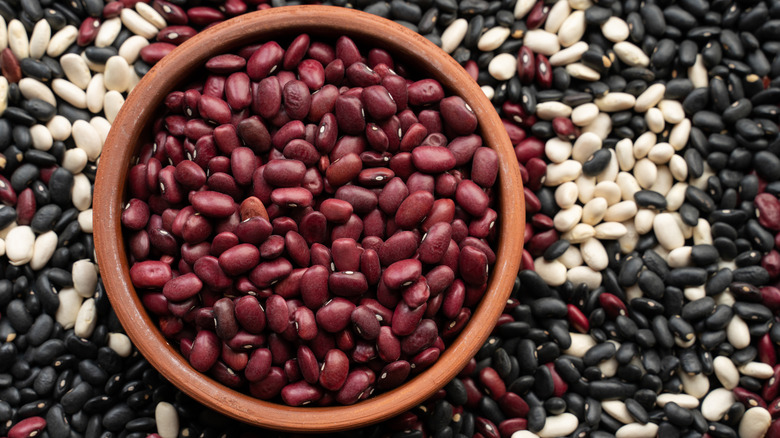The Real Reason Beans Can Cause Gas
Our brains have been hardwired from our youth to associate beans with gas. Both their aural and olfactory side effects have been immortalized in song and cinema. Perhaps most famously, Mel Brooks paid tribute to the fart joke with his scene in "Blazing Saddles," in which a group of cowboys, sitting around a campfire eating plates of beans, suddenly erupt into a symphony of flatulence.
But what is the science behind these sophomoric gags surrounding beans? Why do they make us gassy, and why have they become synonymous with the act of 'tooting?' The truth is that beans contain soluble dietary fiber, along with a group of bulky sugars called oligosaccharides that are not broken down during the digestive process (via Mental Floss). The oligosaccharide in beans that resists digestion is called raffinose, according to ZME Science.
Unlike other sugars, oligosaccharides pass through the small intestine unscathed because the body doesn't produce an enzyme that can break them down (per VeryWell Health). When they make it to the large intestine, these oligosaccharides encounter a host of gut bacteria which are hungry to devour some sugars. As stomach bacteria consume the sugars, the fermentation releases methane and other gasses that create the wind instrument music known as a fart.
Reducing gas and bloating from beans
Of course beans aren't the only food that causes gas and bloating, it's just the most prominently known in popular culture. Foods that are high in soluble dietary fiber like beans, broccoli, and cabbage are generally more difficult to digest, but fiber provides a number of health benefits including lowering cholesterol and improving heart health, according to Healthline.
Thankfully, these days you don't have to make the difficult decision to omit these healthy options from your diet out of fear that your high fiber choice might also leave you quite unpleasant in the company of others.
You can take some natural preemptive measures, including soaking beans before cooking them to try and mitigate their gas-producing properties, and drinking plenty of water. There are also medicinal interventions like Beano, which contains a natural digestive enzyme called alpha-galactosidase — yep, that would be the one missing from our guts that helps break down those oligosaccharides before they get to the methane factory known as the colon. While these actions will not eliminate gas completely, they can at least curb it and help ease your discomfort, and that's definitely music to your ears.

